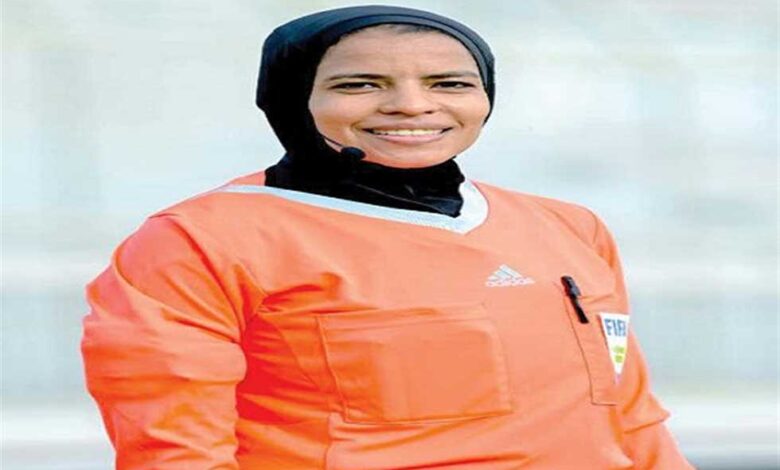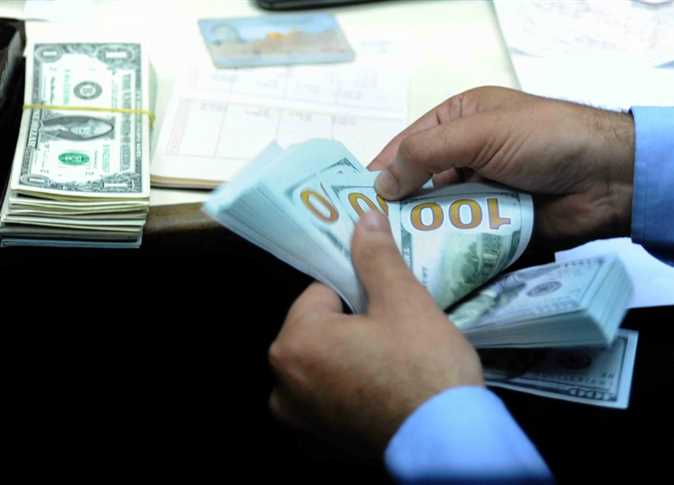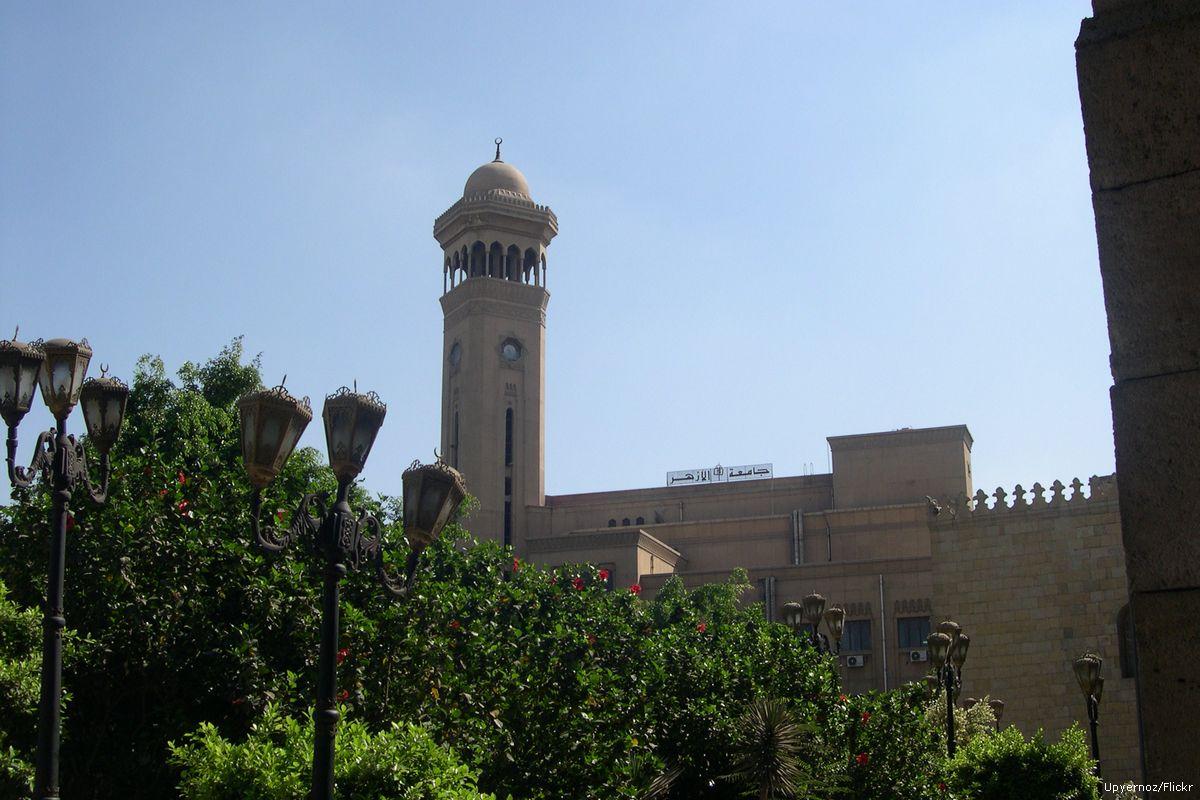
Defying the deep-seated customs and traditions of Upper Egypt, Amal Hassan has carved out a unique path in football, transitioning seamlessly from playing and coaching to becoming one of the most prominent female referees in Egyptian sports.
Her journey is one defined by sheer determination – battling the pressures of customs and traditions, the difficulties of travel, and the challenge of balancing academic studies with her work as a football referee.
How did you get started with football?
In 2014, I was in my second year at the Faculty of Physical Education at Assiut University.
A football professor at the college, Ahmed Hussein, noticed my speed during one of the training sessions. He was impressed and convinced me to join the women’s football team at the Muslim Youth Club in Assiut.
By 2019, I started moving into the field of coaching at the club, under the guidance of the ‘A Thousand Girls, A Thousand Dreams’ project, affiliated with the Ministry of Youth and Sports.
What struggles did you face at the beginning of your journey?
I grew up in a village in Sahel Selim district, where the mere idea of a girl playing sports, in general, was rejected due to customs and traditions.
Initially, my family didn’t know because I was studying at the Faculty of Physical Education, where the nature of my studies was closely related to football practice.
But later, I came clean to them, and they rejected the idea at first until I was finally able to convince them.
If you could go back in time, would you have continued as a player and coach, or would you have gone straight into refereeing?
Honestly, I wanted to continue my journey as a player, and then move into coaching.
I did start coaching at the Shoban Assiut Club, and I would visit schools to pitch the idea of playing football to the girls. So many girls signed up that I found it challenging to train such a large number.
In 2019, I coached the 2004 team at Assiut Petroleum Club, before eventually leaving coaching to pivot toward refereeing.
How did you start refereeing?
Captain Kareem Adel, my coach at Shoban Assiut Club, suggested the idea of refereeing to me.
I resisted at first, but after his insistence, I decided to give the experience a shot, especially when I learned that there were no female referees in Upper Egypt.
Since I naturally love a challenge, I pressed on with my journey and put forth my maximum effort to achieve success.
What was the first match you refereed?
I don’t recall exactly, but my first official match was a youth competition for the 2005 age group at the Darnka Club, and Captain Mohamed Taha was with me.
Before that, I managed friendly matches for clubs in the third and fourth divisions.
How did you feel when you stepped onto the field for your first game as a referee?
I was very nervous. I kept thinking: how will I deal with the players? What will happen if they object to my decisions?
I faced difficulty making certain calls, especially with offside situations.
I was genuinely confused during the first half, but I found great support and encouragement from the rest of the officiating crew.
Why did you first choose to be an assistant referee instead of a center referee?
I wanted to be a center referee because it suits my personality, but you always start as an assistant referee to gain experience and get used to the intensity of matches.
Two years into my journey, I requested to be appointed as a center referee, and I was assigned one match. However, when it came time to choose between continuing as an assistant or a center referee, I decided to remain an assistant because I felt I didn’t have enough experience managing the game yet.
By that point, I had also grown comfortable in the assistant role.
Did your experiences playing football help you in refereeing?
Yes, it helped me a lot. If I hadn’t played the game, I wouldn’t have been able to call many of the situations correctly.
A lot of players resort to deception to try and fool the referee, and my experience as a player helped me handle those specific situations.
What was the most difficult situation you faced as a referee?
In one of the Women’s Premier League matches last season, a coach repeatedly objected to my decisions, and even verbally abused me after the match.
Even though I documented the incident in my report, the situation left me furious. After dealing with the exhaustion of travel and difficult transportation, it was unacceptable to endure such insults.
At that moment, I seriously considered retiring from refereeing.
Why did you continue your post-graduate studies despite your commitment to refereeing?
I graduated at the top of my class at the Faculty of Physical Education at Assiut University, and I was appointed as a demonstrator (teaching assistant) there.
It was necessary to complete my master’s and doctoral degrees as part of the career progression.
What were the topics of your master’s and doctoral theses?
My master’s thesis was on the triple jump and the effect of using elastic ropes on physical capabilities. My doctoral dissertation, on the other hand, focused on track and field and middle-distance running.
Did your academic studies help you in refereeing?
Absolutely, as it’s within the same sports field.
I teach track and field, long-distance, and short-distance running, and I focus on increasing physical capabilities. When I undergo refereeing fitness tests, I’m well-prepared and know exactly how to create a physical program to help me pass them.
Likewise, during training camps, I’m able to convey information in a scientific manner.
Is there a difference between refereeing men’s and women’s matches?
Yes, there is a big difference. Men’s matches are characterized by higher speed, and their running rates are much higher than women’s – the physical abilities are simply different.
Is there discrimination between men and women when assigning matches?
There is no explicit discrimination, but there is always a continuous apprehension about assigning Premier League or Second Division matches to an all-female crew.
This is despite the fact that women are highly capable of managing men’s matches with great efficiency.
Have you refereed any men’s matches?
Yes, in Assiut, I often referee men’s matches. However, at the Premier League, I only participate in women’s matches.
What is your advice for women who wish to enter the field of refereeing?
Refereeing is not easy; they will face many difficulties. Therefore, they must have patience, ignore criticism, work to constantly raise their physical fitness, and keep up with the continuous amendments to the laws of the game.
What are your ambitions for the coming period?
To officiate the men’s Premier League matches and participate in the World Cup, whether at the men’s or women’s tournament.
Who is your biggest supporter throughout your career?
Myself. I had great determination to overcome all challenges, and I always trusted my abilities and supported myself.
I can’t deny the credit due to my colleagues and professors, especially to Ahmed Hussein, who was most instrumental in my entry into football and refereeing, and who continues to support me now.
I am also grateful for my family’s support.
Who is your role model in refereeing?
There are many big names in the field of refereeing, but I look up to former international referee Mahmoud Abu al-Regal as an icon.
When did you receive your international badge? And what was the first international match you officiated?
I received the international badge in 2025. My first international match was between Morocco’s AS FAR and Tunisia’s Sousse, as part of the North African Women’s Championship.
What are the most prominent problems facing Egyptian refereeing?
We are the group that faces the most attacks, amid a lack of psychological, media, and fan support. Referees bear immense pressure both on and off the field.
What is your opinion on the Colombian Head of the Referees Committee, Oscar Ruiz?
Since taking charge, he has been working to develop the referees and increase their physical fitness. He organizes many training camps to select the most competent individuals and gives everyone a fair chance.
If he continues with the team he is working with, we will see a major leap forward in Egyptian refereeing.




